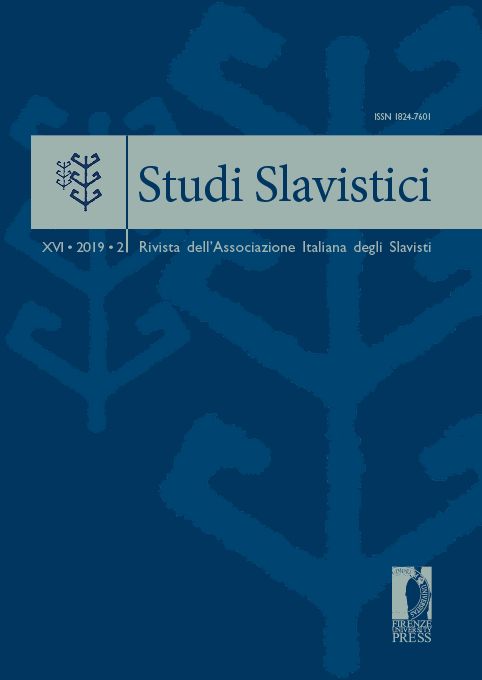Quotations from the Psalms in the Translation of St. John Chrysostom Homilies on Gospel of Maximus the Greek's Book Circle
Published 2020-01-20
Keywords
- Homiliae,
- Quotations,
- Church Slavonic Versions of the Book of Psalms,
- Textual Criticism,
- Maximus the Greek
Abstract
Maximus the Greek dedicated the early period of his book activity in Russia to the translations of exegetical texts, such as the translations of the lost part of the Catenae on the Acts of the Apostles (1519 or 1520), the Catenae on the Psalms (1522), St. John Chrysostom’s Homilies on the Gospel of Matthew (1524), and St. John Chrysostom’s Homilies on the Gospel of John (1525). The article analyzes the quotations from the Book of Psalms represented in two translations of John Chrysostom’s homilies. It is established that when working on the translation of the homilies, not only their Greek original was used, but also the quotations were reconciled with the Church Slavonic versions of the Holy Scriptures. A relatively small amount of quoting of the Book of Psalms prevents the assumption of verification with several sources representing different versions of the liturgical text of the Psalter. The source, which was involved for verification of quotations, mainly followed Metropolitan Cyprian’s version of the 14th century. At the same time, this hypothetical source was characterized by some readings that preserve the more ancient features of the text of the Book of Psalms. There are also special Psaltery readings in the homilies that do not coincide with the readings of the previous versions of the Psalms. This indicates there was targeted editing of the Psalter readings when translating quotations, which was motivated by several factors, including: the intention to preserve the Greek word without translation; the difference in reading between the Psalter and the homilies; the context alignment; and searching for the most appropriate lexical and grammatical solutions for the translation.


